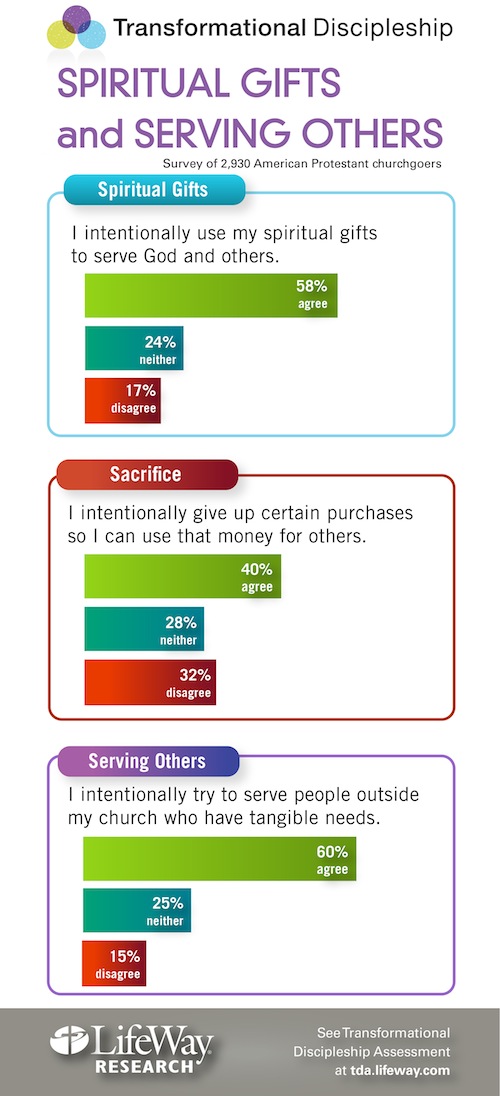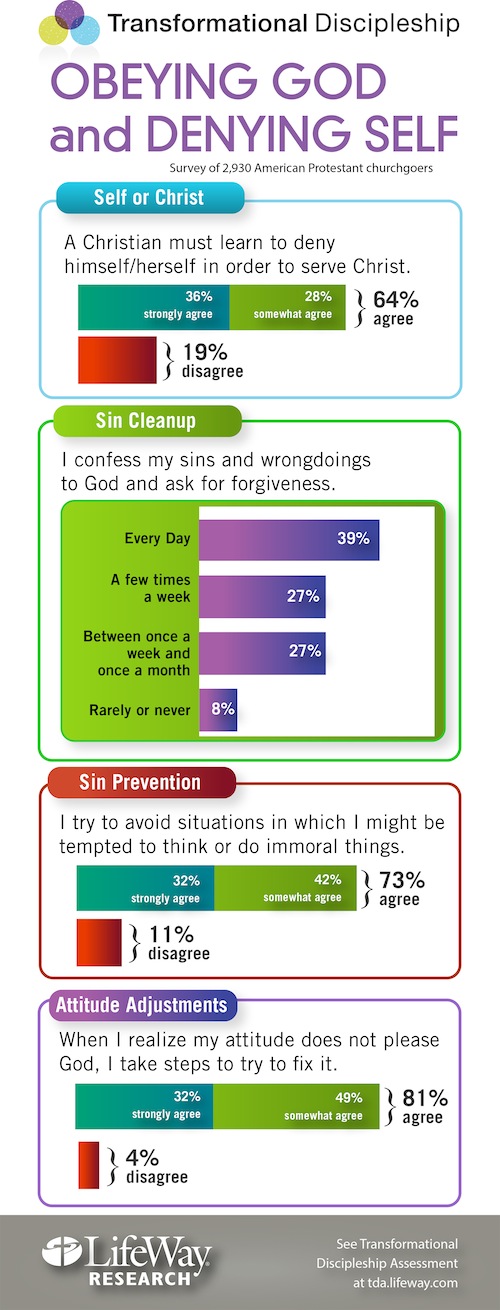
New Research: Maturing Believers Exercise Faith, Trust
LifeWay Research has released a new research brief on maturing believers. Here are the details:
Believers who are progressing in spiritual maturity are more likely to exercise their faith by trusting God even in difficult circumstances, according to a survey by LifeWay Research.
“Exercising Faith” is one of eight attributes of discipleship that consistently show up in the lives of maturing Christians. The attributes are part of the Transformational Discipleship study conducted by LifeWay Research.
Among the eight attributes of discipleship tested, churchgoers have higher scores for Exercising Faith than any of the other attributes, said Ed Stetzer, president of LifeWay Research. Yet, he pointed out, only 13 percent of attendees were able to give the best response to all of the questions in this attribute.
“It is easy to say God has a purpose for everything in life, but it requires faith to enjoy seeing His plan unfold in difficult times,” Stetzer said.
Additionally, 86 percent agree they “express praise and gratitude to God even in difficult circumstances.”
Seventy-eight percent disagree that, in the midst of difficult circumstances, they “sometimes doubt that God loves me and will provide for my life.” Fifteen percent agree they sometimes doubt the love of God and His provision.
The survey shows the longer someone has trusted Christ as their Savior, the better their responses are for exercising faith. Being involved in a Bible study group, praying for Christians and non-Christians, and witnessing to nonbelievers also make a positive impact…
The survey also reveals those stronger in their faith are less prone to doubt God’s involvement, even in unexplainable circumstances. Just 9 percent agree with the statement: “When things happen in my life I can’t explain, I typically doubt God is involved.” Eighty percent disagree with the statement.
To help pastors, churches and individuals measure spiritual development, LifeWay Research used the study’s data to develop a questionnaire for believers, called the Transformational Discipleship Assessment (TDA), an online evaluation that delivers individual and group reports on spiritual maturity using the eight attributes of biblical discipleship. The TDA also provides helpful and practical suggestions for churches and individuals on appropriate next steps for spiritual development.
To learn more about the transformational discipleship research visit LifeWayResearch.com. The TDA is available at TDA.LifeWay.com.
You can read the full release with methodology here.
Read more from Ed here.

Tags: Discipleship, Ed Stetzer, Multiplication, Transformational Discipleship, Transformational Discipleship Assesment

















